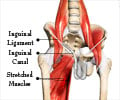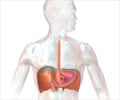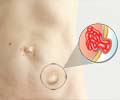Hernia Symptoms
The most common symptom of hernias is a visible lump or bulge. This is common to all hernias be it inguinal, femoral or umbilical hernia. Other common symptoms of hernias include:
- A dragging sensation or heaviness
- Pain – intermittent or continuous
- Occasional digestive upsets
If the lump can be gently pushed back through the abdominal wall, it is known as a Reducible hernia. If the lump resists manual pressure, it is an Irreducible hernia. An Irreducible hernia can become a Strangulated hernia if its blood supply is compromised or cut off.
The symptoms of a Reducible hernia can vary depending on the location and severity, but may include:
- A visible lump or a swollen area.
- A heavy or uncomfortable feeling in the gut, particularly when bending over.
- Pain or ache, particularly on exertion (such as lifting or carrying heavy objects).
- Digestive upsets, such as constipation.
- The lump disappears when the person is lying down.
- The lump enlarges on coughing, straining or standing up.
Symptoms of Irreducible hernia include:
- Usually painful enlargement of a previous hernia that cannot be reduced back into the abdominal cavity.
- It may sometimes be painless.
- If the hernia is strangulated the pain could become very severe.
- Nausea and vomiting could be presenting symptom if the bowel is obstructed or blocked.
Irreducible hernia where the entrapped intestine has its blood supply cut off is a Strangulated hernia. Symptoms of which include:
- Severe Pain, which is always present, followed quickly by tenderness
- Nausea and vomiting may be present due to bowel obstruction Fever may be present.
- The person may appear to be very ill or toxic.
All strangulated hernias are irreducible but all irreducible hernias are not strangulated.


















